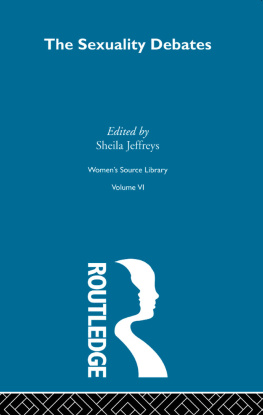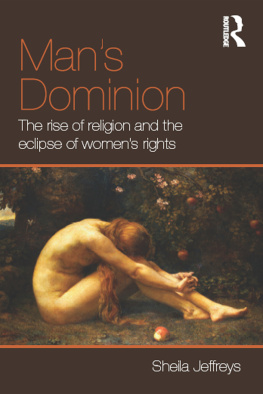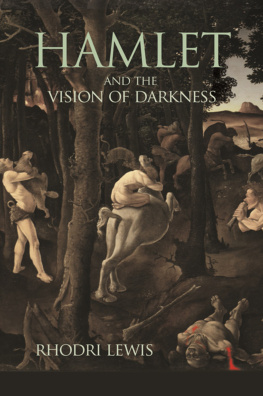Rhodri Jeffreys-Jones - A Question of Standing
Here you can read online Rhodri Jeffreys-Jones - A Question of Standing full text of the book (entire story) in english for free. Download pdf and epub, get meaning, cover and reviews about this ebook. year: 2022, publisher: OUP Oxford, genre: Politics. Description of the work, (preface) as well as reviews are available. Best literature library LitArk.com created for fans of good reading and offers a wide selection of genres:
Romance novel
Science fiction
Adventure
Detective
Science
History
Home and family
Prose
Art
Politics
Computer
Non-fiction
Religion
Business
Children
Humor
Choose a favorite category and find really read worthwhile books. Enjoy immersion in the world of imagination, feel the emotions of the characters or learn something new for yourself, make an fascinating discovery.

- Book:A Question of Standing
- Author:
- Publisher:OUP Oxford
- Genre:
- Year:2022
- Rating:5 / 5
- Favourites:Add to favourites
- Your mark:
- 100
- 1
- 2
- 3
- 4
- 5
A Question of Standing: summary, description and annotation
We offer to read an annotation, description, summary or preface (depends on what the author of the book "A Question of Standing" wrote himself). If you haven't found the necessary information about the book — write in the comments, we will try to find it.
A Question of Standing — read online for free the complete book (whole text) full work
Below is the text of the book, divided by pages. System saving the place of the last page read, allows you to conveniently read the book "A Question of Standing" online for free, without having to search again every time where you left off. Put a bookmark, and you can go to the page where you finished reading at any time.
Font size:
Interval:
Bookmark:
Rhodri Jeffreys-Jones


Great Clarendon Street, Oxford, OX2 6DP, United Kingdom
Oxford University Press is a department of the University of Oxford. It furthers the Universitys objective of excellence in research, scholarship, and education by publishing worldwide. Oxford is a registered trade mark of Oxford University Press in the UK and in certain other countries
Rhodri Jeffreys-Jones 2022
The moral rights of the author have been asserted
First Edition published in 2022
Impression: 1
All rights reserved. No part of this publication may be reproduced, stored in a retrieval system, or transmitted, in any form or by any means, without the prior permission in writing of Oxford University Press, or as expressly permitted by law, by licence or under terms agreed with the appropriate reprographics rights organization. Enquiries concerning reproduction outside the scope of the above should be sent to the Rights Department, Oxford University Press, at the address above
You must not circulate this work in any other form and you must impose this same condition on any acquirer
Published in the United States of America by Oxford University Press
198 Madison Avenue, New York, NY 10016, United States of America
British Library Cataloguing in Publication Data
Data available
Library of Congress Control Number: 2021951468
ISBN 9780192847966
ebook ISBN 9780192663924
DOI: 10.1093/oso/9780192847966.001.0001
Printed and bound in the UK by
Clays Ltd, Elcograf S.p.A.
Links to third party websites are provided by Oxford in good faith and for information only. Oxford disclaims any responsibility for the materials contained in any third party website referenced in this work.
For Effie, George, and Sadie
Cold air blasted into the vestibule of the Harrington, cushioning the hotels air-conditioned interior. Pushing outward on its doors I plunged into the August humidity. Some twenty minutes later I was at the Neptune saloon, close to the Capitol and the Library of Congress. The admirals daughter had taken a break from dancing on the bar top. Clients relaxed. At least for a while she would not, as was her custom, leap unnervingly into an unsuspecting lap. Absent, too, was the barfly who claimed to be a nephew of the Louisiana populist Huey Long, and whose habit was to greet me with the unwelcome words, Ah hate the British. Bah me a beer.
Richard Harris Smith sat nursing a Schlitz. I recognized him from a photo issued to publicize his book OSS (1972). That book was a gem. I was sympathetic to its excoriation of British imperial ways, though I did wonder if it presaged an American empire. Later on I got to know a little about Harris Smith. As a senior CIA officer, he had run the situation room established by the administration of Lyndon B. Johnson. He had been in charge there at the time of the questionable US military intervention in the Dominican Republics civil war (1965).
Harris Smith was a charming, can-do kind of person. Learning of my interest in the history of the CIA and knowing that I lived in Scotland, he proposed that we organize a joint conference on the subject of the agencys past. This would be on the Isle of Skye. Overlooked by the Cuillin hills, we would plot a course leading to greater enlightenment. Perhaps Dame Flora would allow us to use Dunvegan Castle. Spurning the local, smoky whiskies, we would drink Speysides Macallan single malt. He knew it was my favorite tipple and stated that, at CIA headquarters in Langley, VA, they drank nothing else.
The conference that would have brought back the good old days never came to pass. In the mid-1970s the American people and Congress rose up against the CIAs boondoggling practices. Harris Smith, a man I liked enormously, became the relic of a bygone age.
The year 1975s intelligence investigations not only interrupted the flow of unvouchered funds but also led to other reforms such as more insistent congressional oversight. It was the first major upheaval in the CIAs history. The following chapters present an overview not only of upheavals but also of the agencys origins, successes, and failures. This is not with the aim of supplying comprehensive coverage. America is a world power and any attempt to cover the CIAs history in its entirety would be overambitious. Instead, in the style of an essayist I shall look at key events. Such events, for example, the Bay of Pigs episode, will be recognizable at least by name to students of the American past.
With the same object of making the CIAs history easier to the eye, I mainly avoid certain practices that have plagued the writing of intelligence history. They include the excessive use of acronyms. Further eschewed is the overemployment of sometimes obscure operational names. This book calls the Bay of Pigs invasion the Bay of Pigs invasion, in preference to Operation TRINIDAD, Operation ZAPATA, or Operation JMARC. Finally, I omit that page-defacing device, the uniform research locator, or URL.
Observing the foregoing principles, we will expound the books central thesis, that the agencys effectiveness has depended on its standing. The CIAs standing in the White House determined the scale of its impact. The agency struggled with other entities vying for position in the White House pecking order. Its success depended on the ability of a president to understand intelligence briefings but also on his willingness to heed them, a function of personality and political priorities. It depended not only on the CIAs performance but also on the communication skills of its leadership. Finally, in democratic America the standing of the CIA was discernibly dependent on public opinion.
The White House responds to public opinion because the president is an elected official. The president also heeds it indirectly because he is answerable to Congress. For members of the House and of the Senate, as for the chief executive, what shaped opinion mattered. Therefore, it mattered for the CIA. For the CIA needed appropriations, the prerogative of the House of Representatives, and it needed also Senate approval of its foreign-policy-affecting activities.
Domestic transgressions by the agency such as spying on students did not go down well with Congress. What the CIA did overseas mattered less. The CIAs standing abroad is still significant, though. As one observer after another affirmed, the agencys covert actions were the greatest single cause of anti-Americanism in the post-World War II era.
Those who mandated the covert operators to engage in excesses seriously damaged Americas claim to be the champion of democracy. Great swathes of the worlds population wanted a judicious blend of democracy, socialism, and capitalism, which was just what the United States itself had, but would not fully admit. The CIA itself was a democratically created and overseen institution. But those who guided the CIA insisted, in their designs for foreign lands, on defining and enforcing a binary choice between socialism and democracy-plus-capitalism. Thus it came to pass that the agency contributed to the overthrow of democratically elected governments by covert but only too discoverable means. In this way, the CIA eroded Americas international capabilities in the vital realm of soft power. And when things came unstuck, as they regularly did, the agency suffered a loss of status in the White House that affected the credibility not just of its operators but of their colleagues the analysts as well.
Font size:
Interval:
Bookmark:
Similar books «A Question of Standing»
Look at similar books to A Question of Standing. We have selected literature similar in name and meaning in the hope of providing readers with more options to find new, interesting, not yet read works.
Discussion, reviews of the book A Question of Standing and just readers' own opinions. Leave your comments, write what you think about the work, its meaning or the main characters. Specify what exactly you liked and what you didn't like, and why you think so.








